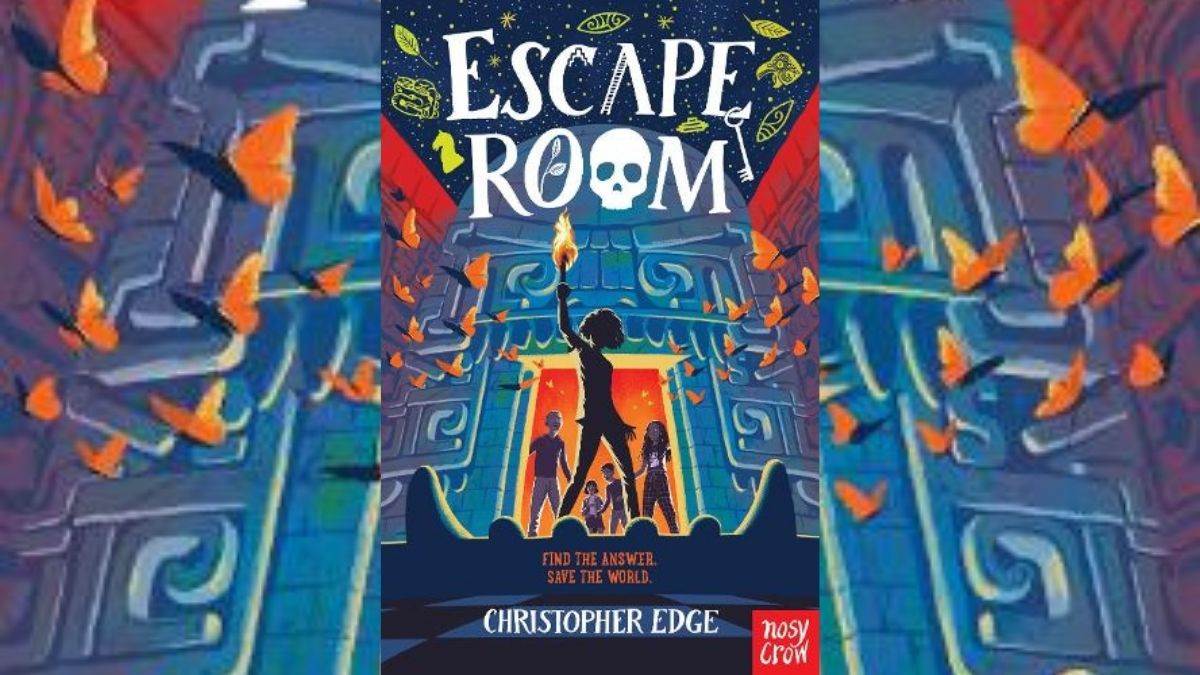Why children's science fiction is so important
Published on: 02 August 2024
Author Alastair Chisholm argues that science fiction is important reading for all children

Science fiction for everyone
I’ve always loved science fiction. As a kid, I devoured Star Trek, Star Wars, Doctor Who, Blake’s 7, Battle of the Planets… And the books! Nicholas Fisk, Jan Mark, John Christopher, Diana Wynne Jones, earlier writers like Asimov, Wyndham, Heinlein and Harrison… I read magic, mysteries, ghost stories, even the odd bit of reality – but sci-fi was my jam.
These days, we’re still surrounded by sci-fi in films and TV, but not so much in children’s books. A generation of boy wizard followers took over, and sci-fi fell away. Sometimes, when teachers or parents get in touch, they start: “I’m not a science fiction fan, but…”
But science fiction is such an enormous genre, with so many forms. There’s so much to like! There’s the escapism: fast-paced, laser guns and space wizards and pew-pew-pew. But there are also climate warning scenarios, such as Tom Huddleston’s FloodWorld series. Christopher Edge’s books, like Escape Room and Black Hole Cinema Club, pick an aspect of science and say: look at this! Isn’t it AMAZING? These are the ones that lead to Nobel award speeches: “The book that first inspired me to study physics…”
And then there’s my favourite kind – that which uses future worlds to tell stories about us.
 Escape Room by Christopher Edge
Escape Room by Christopher Edge
Holding a mirror up to society
Science fiction lets us set up scenarios that mirror our own society. We can put our heroes into moral dilemmas and let the readers follow and live them out, exploring complex social issues from a safe, fictional distance. So much children’s sci-fi is already doing this. Darren Simpson’s The Memory Thieves is a mystery thriller, but its heart is a tale of how we process trauma. TrooFriend by Kirsty Applebaum sees the world as a robot bought to be someone’s friend. How would that feel? Should robots have rights? With AI constantly in the news, it won’t be long before we face these questions.
My novel Orion Lost is about a group of children on a stranded starship. But the real story to me is about growing up and learning to recognise your own power. Adam-2 has humans battling terrifying robots – but it’s actually about empathy. In The Consequence Girl, the main character can change time. I wanted to ask: how do we move on after disaster?
 From the cover of Orion Lost by Alastair Chisholm
From the cover of Orion Lost by Alastair Chisholm
In my new novel, I Am Wolf, we meet Coll, a crew member aboard a huge mechanical beast, a Construct, that roams the land, fighting others for territory. When Coll becomes stranded after a battle, he must survive and make his way back to his own Construct before all is lost… It’s a high-action adventure, a desperate chase across a hostile land. It’s giant machine animals crashing into each other, and mysterious technology, and danger and destruction. I had a blast writing it!
But really, it’s about tribalism.
Science fiction can open up conversations
It feels good to belong to a group. When everyone agrees with you, believes what you believe, likes who you like, hates who you hate… In this age of polarised politics, culture wars, and social media encouraging controversy for clicks, tribalism is on the rise. It’s easy to surround yourself with only those who think as you think – and this is dangerous, for society and for us personally.
So science fiction gives us the tools to start conversations on difficult topics from another direction. How do we step up and handle the responsibilities of adulthood? Is AI a threat, or a boon – or does it depend on who’s controlling it? How do we cope when bad things happen? How can we break free from tribalism?
Of course, we can do this with fantasy too – but the wonderful thing about sci-fi is that it is, in a vital way, real. It starts from a place we recognise – one with our laws of reality, one that could be our world, if certain things happened. These are versions of our own future.
The children reading today will soon be facing these possible futures. And some of them seem, frankly, scary. It’s easy to get sucked into a doomscroll of worry about the state of the world, and the scale of the challenges. It’s easy to consider them too large to deal with.
But when I’m chatting with children in schools, libraries or other events, I often show them a quote from Thomas Paine, political activist and philosopher of the American Revolution. At that time, with America still weak and newly begun, it seemed inevitable that British monarchy would rule forever. But Paine wrote:
“We have it in our power to begin the world over again.”
This was his claim: the future is not immutable, no matter the present. If we can imagine a different world, we can make it happen.
With science fiction, we can encourage the next generation to imagine any number of worlds, and choose the ones they want – and then help us believe they are possible. And if we can, then together…
We can fix the future.
Topics: Science fiction, Environment, Science, Dystopia, Features, Space





